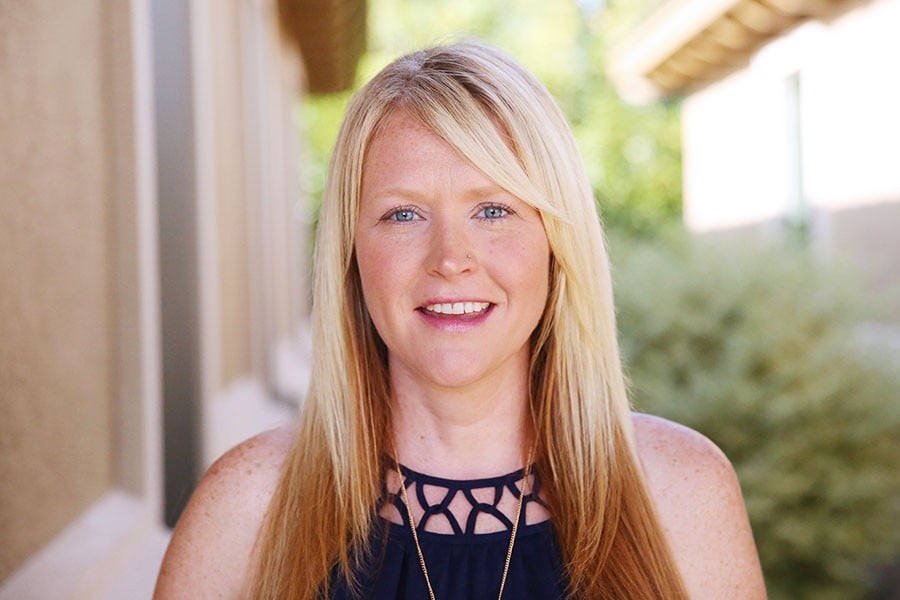Premarital Counseling: Everything You Wanted To Know

Unlock Daily 30-Sec Tips for a Happier Relationship
👉 Subscribe FREEKey Takeaways
Marriage.com AI Quick Summary
When you know, you know, but while planning for your marriage are you also getting “ready” for your marriage? Have you considered including premarital counseling a part of your wedding plans?
According to a report by the Journal of Family Psychology, couples who underwent premarital counseling had 30 percent lesser chances of a divorce in the next 5 years as compared to those who did not.
Now, if you think pre-marriage counseling is for people with problems, then this whole idea of premarital counseling sessions or premarital classes, might sound intense or appear a bit premature at first.
But most couples who have actually undergone premarital counseling, report it to be a truly enlightening experience.
The pre-marital counseling sessions help you learn the skills required for a successful marriage – something that can go a long way in strengthening your chances of staying together.
This is especially true in modern times where divorces are far too prevalent and most couples don’t have a role model to look up to for inspiration. And this is where counselors can step in as your relationship experts.
So, let us have a look at what is pre-marriage counseling exactly and what do you talk about in pre-marriage counseling. Consider these pre-marriage counseling tips to get sorted with all your queries.
Benefits of pre-marital counseling
There is clear importance of pre-marriage counseling: The willingness to communicate, and working through problems is usually much easier before the wedding than after the fact.
Once you get married, you tend to get bogged down by unspoken expectations for each other. Not to mention the quirky ideas you might have fancied about how married life ought to be like.
When you are not married yet, you are in a building phase — the expectations are still there, but it’s a whole lot easier to open up on certain problems.
By getting into a habit of talking through the differences that are bound to come up, you are setting up an excellent model to follow throughout the rest of your married years.
If you are getting married in a house of worship, then premarital counseling might already be a part of your schedule. If not, you can check our directory listings to find a premarital counselor in your area.
You can also get in touch with your local community centers, colleges, or universities to find out if they offer workshops on marriage-building. In any case, let’s take a look at how a certified premarital counselor can help you build a solid foundation for your future together.
We will also explore the few key premarital counseling tips that couples should consider prior to walking down the aisle.
Recommended – Pre Marriage Course
Should you go for premarital counseling?
Here are some things to consider if you have been debating whether you should go for premarital counseling.
Personal history
You may have been dating each other for years, but it’s no guarantee that you are familiar or entirely comfortable with the history, experience, and emotional baggage that you are both bringing into this marriage.
Personal aspects like your faith, health, finances, friendships, professional life, and previous relationships are some things that need to be discussed.
Carefully crafted questions from an experienced counselor can help you come to terms with any part of your partner’s personal inventory that might play a bigger role in your relationship at a later stage.
Creating fruitful marriage resolutions
It’s easy to get emotionally overwhelmed when discussing things like sex, kids, and money. A trusted counselor, through a series of thoughtful questions, can guide the conversation in a clear and logical manner.
This will prevent you and your partner from going off on a tangent and ultimately help you work out the resolutions that can go a long way in sustaining an endearing married life.
Developing conflict resolution skills
Let’s face it – every once in a while there are bound to be some tiffs and blowouts. We have all had them. What’s important here is to understand how you both tend to react at such a time.
Do you sulk, or mete out the silent treatment? Does it get to the point of name-calling and even yelling?
A good premarital counselor will help you be honest with yourself. He will show you that there’s probably some room for improvement. Counseling sessions like these teach you how to listen and communicate better. And more importantly, you will learn what not to say (and when not to say) in order to reach an amicable solution.
Get realistic about expectations and long term planning
This is the time when you can get together and set your expectations on important things like having kids or buying a new car or house.
For example, if you and your partner talk about it and make a decision on not having kids for the first two years, it will save you headaches and frustrations later when you are ready for a kid while your partner isn’t ready.
This also applies to many other important decisions that you will be making together as married partners.
Prevent resentments from hurting you in the future
This is also a good time to discuss and clear any issues or resentments that may have been lingering in your relationship, waiting to explode later on. A counselor will help you clear the air on these issues.
Put to ease any fears regarding getting married
You would be surprised to know how many people get cold feet right before getting married. This could stem from the fact that one of the partners comes from a family with a history of divorce.
Matters can get even more complicated if one of them has a dysfunctional family background replete with fighting and manipulation. Premarital counseling will teach you how to break the shackles of the past and move on to a new beginning.
Prevent marital stress
When you date someone you ignore certain habits or behavior of your partner without stressing too much on it. But the same things can appear to be frustrating after marriage.
An experienced wedding counselor, with his unique “outsider’s perspective”, can help you understand these habits and behavior that can put your partner off.
Address any concerns that you have
Money
Counseling sessions can be costly and could potentially throw off your wedding budget plans. If booking the services of a professional premarital counselor seems off-limits, try consulting your wedding planner to see if he/she knows of any free or low-cost counseling resource like a community clinic or a teaching hospital.
If you are getting married in a house of worship, premarital counseling may already be a part of your wedding schedule.
If not, you can try out the National Association of Social Workers or the American Psychological Association and see if they can help you locate an affordable premarital counselor in your locality.
Timing
Weddings are frantic occasions and you often end up wearing too many hats at the same time. Taking time out of your busy schedule and activity-laden weekends can be a challenge.
Despite this, and for reasons mentioned above, taking an appointment and making it to the counseling session is still worth it.
Fear of unearthing additional problems
Sometimes it’s the fear of the unknown that can put off couples from attending a counseling session. It’s not unusual to fear this and to unearth something unwanted when your relationship is put under a microscope.
And, it often leads to further issues and stress. But what you need to understand that although it can hurt you in the short term, it can go a long way in stabilizing your relationship in the long run.
Being humbled
This is a time when you need to be prepared to be humbled. Counseling sessions like these can end up in you finding out that you aren’t exactly that great in bed or that your wardrobe needs a total upgrade.
Even something as simple as finding out that your dressing sense leaves a lot to be desired could make you feel as if you are being scolded. Well, these are some tough facts about your relationship that you need to face at some point in time and sooner it is, the better.
Discussing these things in a premarital counseling session will ensure you don’t carry the baggage of unwanted expectations into your marriage. It is critical that the couple get rid of their egos and open up for constructive criticism as the first step towards becoming a better husband and wife.
Remember: Premarital counselings can prove to be challenging. But it’s all for your best and putting in the extra work at this time will go a long way in ensuring a smooth ride as you drive into your new world as soulmates.
Remember to be thorough about all the premarital counseling exercises before you plunge into it. If you have done your homework well, you should be able to make the most of your time, money and energy you invest in this process.
Making the most of your counseling sessions
- Be prepared, it can get challenging: Don not assume that a counseling session is just another word for planning out things like when you are going to have kids, buy a new house and so on. There is a lot more to it, and can often get challenging. Be prepared for surprises!
- Remember, the goal here is not to “Win”: It’s not a war. It’s not a game either. The focus should be on opening up and talking about working together to change things that aren’t working.
- Keep your sessions private: Trust is the glue that’s going to hold your relationship together. Irrespective of the outcome of the counseling session, you should not discuss it with anyone.
Friends, bridesmaids or relatives – no one needs to know what happened during the session. Facebook and other social media are strictly off-limits too. Do not mention anything that could cause any embarrassment to your partner.
- Be grateful: Make it a point to let your partner know how much you appreciate them agreeing to attend the counseling session with you. Let them know how much this means to you and that session would be the beginning of working together in making this marriage successful.
15 Premarital counseling questions you must discuss
If you are wondering about what you need to talk about before you get married or what is discussed in pre-marriage counseling, here’s a list of some important topics that you may want to discuss with your premarital counselor before you take the plunge.
Remember, while it’s great to hire a professional counselor to guide you, you may find it easier to just discuss these topics from the comfort of your home. Use these questions to get the conversation going about your expectations, concerns, and hopes.
1. Marriage commitments
Discuss what commitment means to you and your partner as you make plans of walking down the aisle.
- What makes your partner special and things that led to you choosing to marry them over everyone else that you have met and could have married?
- What was the best thing about your partner that attracted them to you initially?
- How do you think your partner will help you become what you hoped for?
2. Career goals
- What are your career goals (job, travels, etc.) and what will it take for you, as a couple, to achieve them?
- What are you looking to achieve in the near and distant future in terms of your career goals?
- Do any of you plan on making a career switch, and if so, how will you make up for the possibly lower incomes?
- Does your workload get so busy at times that you need to be working late nights, or during weekends and holidays?
- Do you hope to leave behind a legacy after you die?
3. Personal values
- How do you plan on handling conflicts?
- What are your individual points of zero-tolerance (e.g. Infidelity, dishonesty, gambling, cheating, drinking too much, etc.)? What could be the repercussions?
- What are the most important values around which you want to keep your relationship centered?
4. Mutual expectations
- When it comes to emotional support, what do you expect from your partner in times of happiness, sadness, illness, job or financial losses, personal losses and so on?
- Is it possible for you to set aside a day/night just to yourself, so you could catch up with each other and have fun?
- What kind of a neighborhood and house do you hope to move in, in the near future?
- Are you both aware of how much personal space the other person needs?
- How much time does each of you need to spend with friends, together as well as alone?
- Do you both agree on how much time you need to be spending on work and entertainment?
- Do you both expect to support the family financially and will that change once you have kids?
- Are you both comfortable with the salary differences, if any, between you for now and into the future?
- How will you deal with times when either of you has reached a critical point in your career and need to take some important discussions about it?
5. Living arrangements
- Do you plan on having your parents living with you now or as they grow older?
- What are you going to do if a career change or a new job is compelling you to move to a different location?
- Do you plan on shifting to a different place once you have kids?
- How long do you intend to live in the same house or locality?
- How and where do you plan on living together?
6. Children
- When do you plan on having kids?
- How many children do you plan on having and how far apart do you want them to be in terms of age?
- If, for some reason, you can’t have children, are you open to adoption?
- What are your views on abortion and would that be acceptable in unforeseen circumstances?
- What do you think of your respective parents’ philosophies on raising kids?
- How do you plan on imparting values to your children?
- What do you want your children to learn from your own relationship?
- Are you open to imparting punishments to kids as a way to discipline them? If so, to what extent?
- What kind of expenses (like toys, clothes, etc.) do you think are justified for your children in the future?
- Will you raise your kids with religious beliefs and traditions?
7. Money
- What is your current financial situation, including your savings, debts, assets and retirement funds?
- Do you agree to have full financial disclosure about your personal finances with each other at all times?
- Are you planning on having separate or joint checking accounts, or both?
- If you plan on having separate accounts, who is responsible for what kind of expenses?
- Who pays for the household expenses and bills?
- How much do you plan on keeping aside as an emergency fund in case one or both of you are out of job or in case of an emergency?
- What is your monthly budget?
- Do you plan on keeping aside some funds for “fun and entertainment? If so, how much and when do you tap into them?
- How do you plan on resolving arguments related to finances?
- Do you plan on creating a savings plan for buying your house?
- If either partner has a running loan (house loan or car loan etc.), how do you plan on paying for it?
- How much credit card debt or home loan is acceptable?
- What are your views on taking care of the financial needs of your parents?
- Do you plan on sending your kids to a private school or a parochial school?
- Do you plan on saving for your kids’ college education?
- How do you plan on managing your taxes?
8. Love and intimacy
- Are you content with your existing lovemaking frequency or does either of you want more?
- If either of you agrees that you are not having sex as often as you would like, is it because of time or energy? In either case, how do you get around those issues?
- How do you plan on resolving differences in sexual preferences?
- Is there anything that is off-limits?
- What’s the best way for either of you to let the other partner know that you want to have more sex?
- Do either of you think you need more romance from your relationship? If so, what exactly are you looking for? More hugs, kisses, candle-light dinners or romantic getaways?
9. When heated conflicts ensue
- How do you plan on dealing with situations where there are major differences leading up to expressed anger?
- What do you do when your partner gets upset?
- Is asking for a time out so you can cool down and look for creative ways to resolve issues an option with either of you?
- How do you reach out to each other after a major brawl?
10. Spiritual and religious beliefs
- What are your individual or shared religious beliefs?
- If you both have different religious beliefs and practices, how are you planning to accommodate them in your life?
- What are your individual spiritual beliefs and practices and what does spirituality mean to both of you?
- What sort of participation would you expect from your partner when it comes to personal or community-based spiritual activities?
- How do you feel about your children attending spiritual or religious education?
- Are you comfortable with your children going through rituals like baptism, first communion, christening, bar or bat mitzvah?
11. Household chores
- Who is going to be primarily responsible for household chores?
- Can you revisit your household chores job division responsibility in a few months’ time if either of you is not too thrilled about it?
- Is either one of you too fussy about the house being spotless? Does even a little bit of clutter bother you?
- How will the meal planning and cooking responsibilities be divided among you, both on weekdays as well as weekends?
12. Family (parents and in-laws) involvement
- How much time does each of you need to spend with your parents and how much do you expect your partner’s participation?
- Where and how do you plan on spending your vacations?
- What are each one of your parents’ expectations with respect to vacations and how do you intend to deal with those expectations?
- How often do you intend to visit your parents and vice versa?
- How do you plan on dealing with your respective family drama if and when it crops up?
- How do you feel about either one of you talking to your parents about any problems in your relationship?
- What kind of relationship do you expect your children to have with their grandparents?
13. Social life
- How often do you plan on spending time with your friends? Are you planning on continuing with your regular Friday night “happy hour” plans with your friends even after getting married, or plan on changing it to just one a month perhaps?
- If you don’t like a certain friend of your partner’s what are you going to do about it?
- How do you feel about having a friend stay over with you while they are in town, or out of work?
- Are you planning on having date nights?
- How often do you want to go out on holiday together?
14. Extramarital relationships
- Do you agree on establishing from the beginning that extra-marital relationships are not an option?
- How do you feel about “affairs of the heart”? Do they amount to a sexual affair?
- How okay are you about talking to your partner about being drawn to someone erotically since this can further build the bond between you and your spouse.
- Do you agree to never discuss your intimate relationship with a person of the opposite sex (except for a therapist or a clergy)?
15. Gender role expectations
- What kind of expectations do you have from each other in terms of who does what in the family?
- Do you feel your partner’s views on gender-based expectations are fair?
- Does either one of you have preferences that are totally dependent on gender?
- Do both of you expect to continue to work once you have kids?
- When your kids get sick, who stays home to look after them?
Watch this video:
While talking with your fiance about any of these topics, it is natural that you may find some questions disconcerting or cause you to feel upset. But you will both be much-relieved couples once you have discussed these questions with an open mind and as truthfully and genuinely as possible. But wait!
Do not discard this list once you are done. Review these questions again in 6 months or a year after you get married, and see how you feel about these questions then.
 Tips
Tips
Write your tip or submit a video tip
All tips are reviewed before the publishing.
Share this article on
Planning to get married?
Just engaged or contemplating marriage? Discover how to transition smoothly into the next phase of your relationship with Marriage.com's Pre-Marriage Course. Begin your incredible journey with this guide designed by experts and lay a strong foundation for your path of togetherness - forever!
Recent Articles
Related Quizzes
Unlock Daily 30-Sec Tips for a Happier, Healthier Relationship
👉 Subscribe FREE on YouTube We'd love your feedback!
We'd love your feedback!
 Expert Q&A
Expert Q&A
Ask your question related to this topic & get the support you deserve from experts.

 Reviewed By
Reviewed By


















 Thanks for your feedback!
Thanks for your feedback!